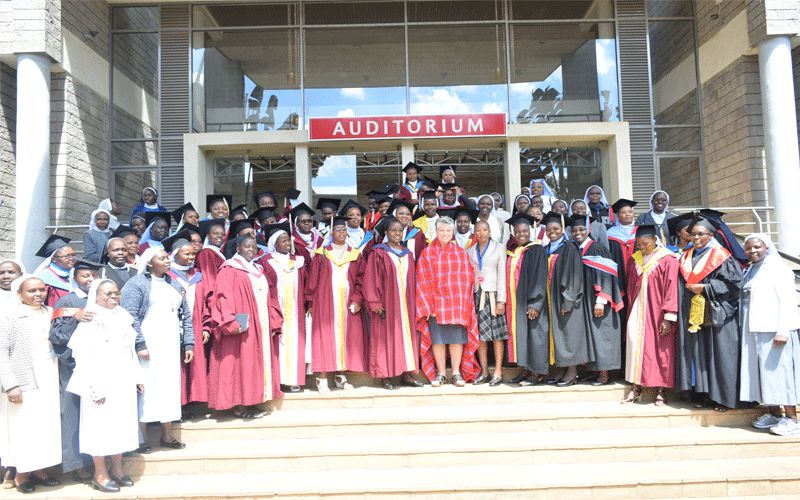Nairobi, 25 October, 2019 / 2:17 am (ACI Africa).
In a move that seems to further a previous call for collaboration with African-based scholars in view of enhancing empirical research on Catholic education in Africa, Catholic nuns in Africa have been encouraged to engage in studies that seek to examine issues affecting the lives of consecrated women in a bid to fill a scholarship gap that currently exists.
“I am encouraging you as women religious to carry out research on issues affecting your own lives as religious,” Dr. Ann Rita Njageh told hundreds of nuns who are members of Higher Education for Sisters in Africa (HESA), a program sponsored by the Conrad N. Hilton Foundation, an American non-profit charitable foundation.
“If you (religious women) do not carry out this research yourselves, nobody else is really going to be interested in doing (it), not even the lay people,” Dr. Njageh, a lecturer based at the office of academic linkages under the Catholic University of Eastern Africa (CUEA) in Kenya explained.
She was addressing nuns from some 10 African countries belonging to different religious congregations who are beneficiaries of HESA program and set to graduate at CUEA on Friday, October 25.
In an exclusive interview with ACI Africa at CUEA, the venue of the October 23 HESA meeting, Dr. Njangeh provided further justification for her call for empirical research on Catholic nuns in Africa saying, “For a very long time religious women have been sidelined in decision making, in platforms of policy making even when it comes to practice.”








